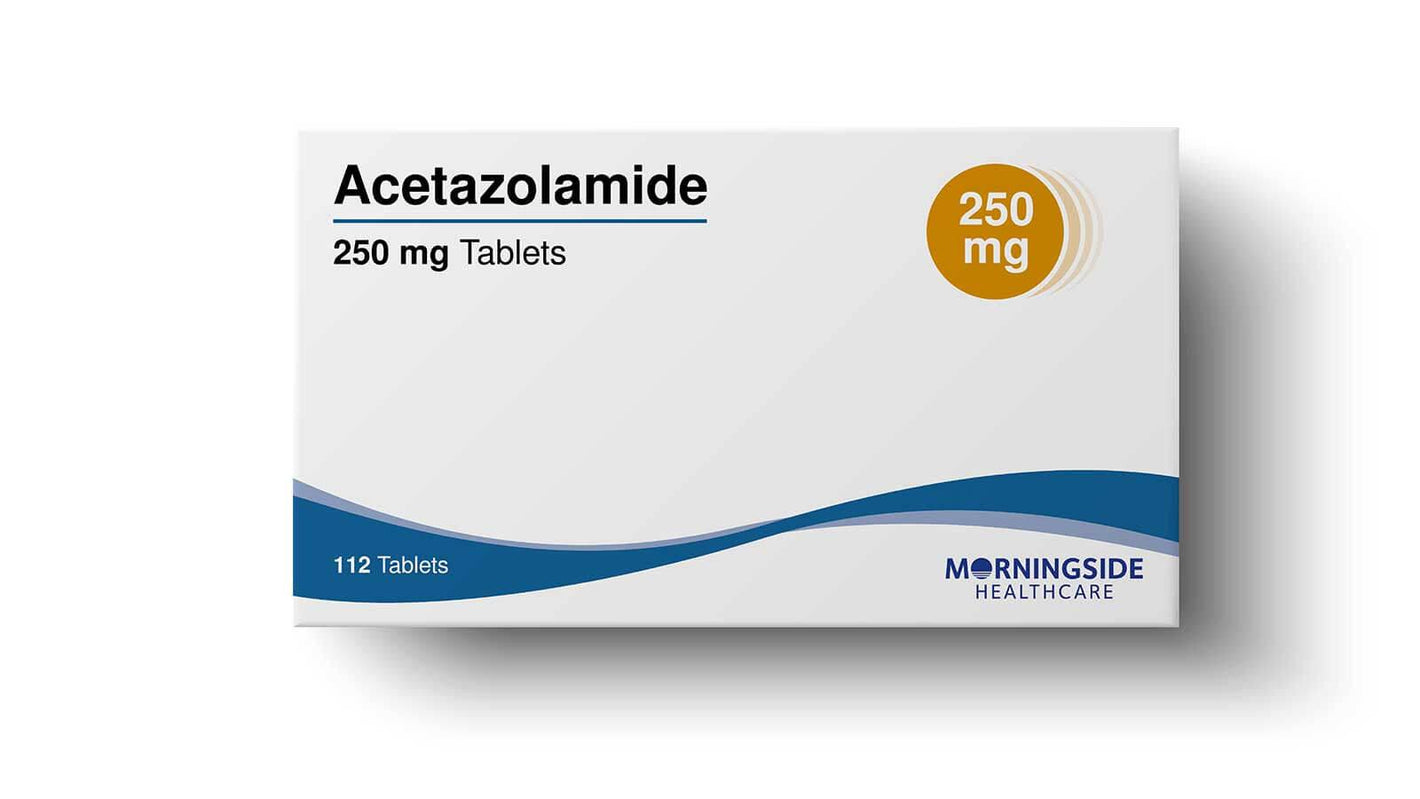Acetazolamide - A Comprehensive Guide on Uses, Side Effects, and More

Related products
Acetazolamide is a medication that is commonly used to treat a wide range of medical conditions, from glaucoma to altitude sickness. This drug works by inhibiting the production of carbonic anhydrase, an enzyme that regulates the acid-base balance in the body. In this article, we will explore the uses, side effects, and other important information about Acetazolamide.
Table of Contents
- What is Acetazolamide?
- How Does Acetazolamide Work?
- What Are the Uses of Acetazolamide?
- Treatment of Glaucoma
- Treatment of Altitude Sickness
- Treatment of Epilepsy
- Treatment of Congestive Heart Failure
- How to Take Acetazolamide?
- Dosage and Administration
- Precautions and Warnings
- What Are the Side Effects of Acetazolamide?
- Contraindications
- Drug Interactions
- Frequently Asked Questions (FAQs)
- Conclusion
1. What is Acetazolamide?
Acetazolamide, also known as Diamox, is a prescription medication that belongs to the class of drugs called carbonic anhydrase inhibitors. It was first approved by the FDA in 1953 and is now widely used to treat various medical conditions.
2. How Does Acetazolamide Work?
Acetazolamide works by inhibiting the activity of carbonic anhydrase, an enzyme that plays a crucial role in the acid-base balance in the body. By inhibiting this enzyme, Acetazolamide reduces the production of bicarbonate ions and increases the excretion of hydrogen ions, which results in an overall decrease in the body's acidity.
3. What Are the Uses of Acetazolamide?
Acetazolamide has a wide range of medical uses. Some of the most common ones include:
Treatment of Glaucoma
Acetazolamide is used to treat open-angle glaucoma, a condition in which the pressure inside the eye increases, which can lead to vision loss. By reducing the production of aqueous humor, the fluid that fills the eye, Acetazolamide helps to lower the pressure inside the eye.
Treatment of Altitude Sickness
Acetazolamide is also used to prevent and treat altitude sickness, a condition that occurs when people ascend to high altitudes too quickly. Altitude sickness can cause symptoms such as headache, nausea, dizziness, and shortness of breath. Acetazolamide works by stimulating breathing and increasing the amount of oxygen in the blood, which helps to alleviate these symptoms.
Treatment of Epilepsy
Acetazolamide is sometimes used in combination with other medications to treat certain types of epilepsy, particularly those that are difficult to control with other drugs.
Treatment of Congestive Heart Failure
Acetazolamide is sometimes used to treat congestive heart failure, a condition in which the heart is unable to pump blood effectively. By increasing the excretion of fluids and reducing the workload on the heart, Acetazolamide can help to relieve the symptoms of congestive heart failure.
4. How to Take Acetazolamide?
Dosage and Administration
The dosage of Acetazolamide depends on the medical condition being treated and the patient's age, weight, and overall health. It is important to follow the dosage instructions provided by the doctor or pharmacist carefully. Acetazolamide is usually taken orally, either in tablet or capsule form
4. How to Take Acetazolamide?
Dosage and Administration
The dosage of Acetazolamide depends on the medical condition being treated and the patient's age, weight, and overall health. It is important to follow the dosage instructions provided by the doctor or pharmacist carefully. Acetazolamide is usually taken orally, either in tablet or capsule form.
Precautions and Warnings
Acetazolamide should be used with caution in patients with kidney or liver problems, as it can increase the risk of kidney stones or liver damage. It should also be avoided in patients with a history of allergies to sulfonamide drugs.
Acetazolamide may cause drowsiness, dizziness, or blurred vision, so it is important to avoid activities that require alertness and clear vision until you know how this medication affects you.
5. What Are the Side Effects of Acetazolamide?
Like all medications, Acetazolamide can cause side effects. Some of the most common ones include:
- Drowsiness
- Dizziness
- Blurred vision
- Nausea and vomiting
- Diarrhoea
- Loss of appetite
- Increased thirst
- Headache
- Muscle weakness or cramps
If you experience any of these side effects, it is important to contact your doctor or pharmacist for advice. In some cases, the dosage of Acetazolamide may need to be adjusted, or a different medication may need to be prescribed.
6. Contraindications
Acetazolamide is contraindicated in patients with a history of allergies to sulfonamide drugs or with severe kidney or liver problems. It should also be avoided in pregnant or breastfeeding women unless the benefits outweigh the risks.
7. Drug Interactions
Acetazolamide can interact with a number of other medications, including:
- Anticonvulsants, such as phenytoin and carbamazepine
- Corticosteroids, such as prednisone
- Salicylates, such as aspirin
- Lithium
It is important to inform your doctor or pharmacist about all medications you are taking, including prescription drugs, over-the-counter medications, and herbal supplements, before starting treatment with Acetazolamide.
8. Frequently Asked Questions (FAQs)
Q1. What should I do if I miss a dose of Acetazolamide?
If you miss a dose of Acetazolamide, take it as soon as you remember. However, if it is almost time for your next dose, skip the missed dose and continue with your regular dosing schedule. Do not take a double dose to make up for a missed one.
Q2. Can Acetazolamide be used to treat migraines?
Acetazolamide is not commonly used to treat migraines, although it may be prescribed in some cases where other treatments have been unsuccessful.
Q3. Can Acetazolamide be used to treat sleep apnea?
Acetazolamide has been used in some studies to treat sleep apnea, although it is not yet approved for this use.
Q4. Can Acetazolamide be used to prevent kidney stones?
Acetazolamide has been used in some studies to prevent the formation of kidney stones, although it is not yet approved for this use.
Q5. Can Acetazolamide be used to treat fluid retention?
Acetazolamide can be used to treat fluid retention, particularly in patients with congestive heart failure or other conditions that cause edema.











 Rated Excellent by 26,523+ Reviews
Rated Excellent by 26,523+ Reviews